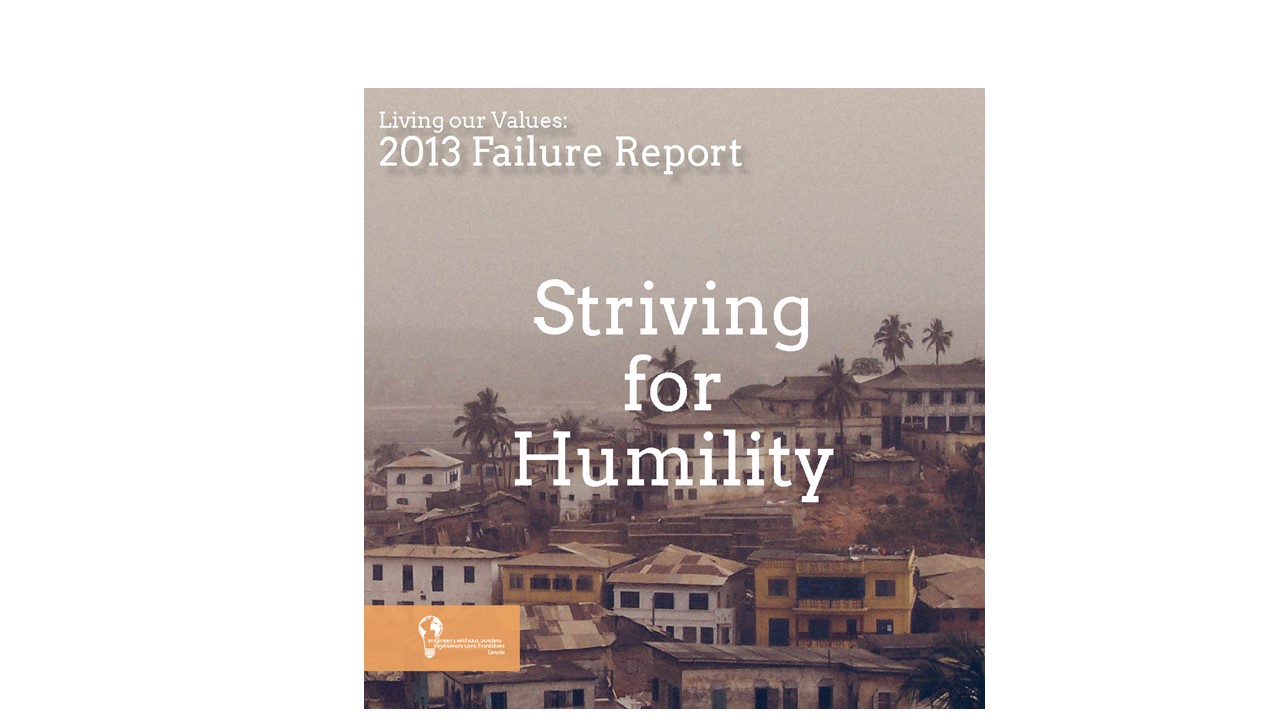Mistakes are the portals of discovery.
James Joyce
I came across an astonishing document published by Engineers Without Borders that applies to the human condition as much as engineering projects. The Canadian division produces an annual “Failure Report” in which they make clear that well- intended engineering projects go bad, often. The topics include forthright looks at failure by first accurately naming the failure then a thorough analysis of what went wrong. They don’t want to be blinded by “patronizing arrogance” nor do they sensationalize failure but they open up a courageous space to learn from it.
The “Failure Report” interrupts the sponsorship of arrogance and encourages a great deal of clarity and humility. Sample chapter titles include: Missing the Forest for the Trees, Letting Go, Wearing Too Many Hats. All of these failures could aptly name failures of modern human life. This is some badass leadership.
I missed a flight to Seattle a few weeks ago, causing great distress in me as well as those close to me. It also negatively impacted the people in Seattle expecting me. When I itemized all of the things that were affected by this one failure, I was astonished by the cascade of consequences. Since I saw the “Failure Report” I now have a new lens in which to look at failure, prompting me to be more analytical. I have since greatly improved my travel process which includes getting to airports earlier. Travel since that missed flight has been a far more relaxing and enjoyable experience.
What would it be like if we integrated these values about how we treat failure into our routine way of doing business? What if we each looked back on the year and made explicit the things that did not go well and spelled out the reasons why. Failure is not a fixed state. It morphs into something else when we get curious about it. Once we learn a new way of doing things from failure, it is no longer a failure.


great 😉